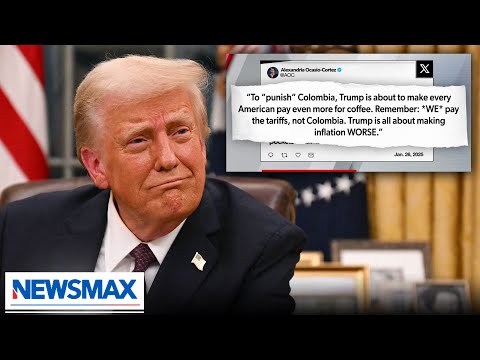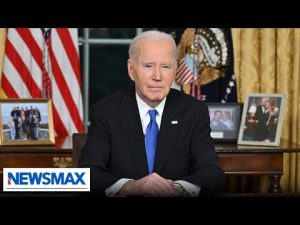The recent trade skirmish between the United States and Colombia over the return of illegal aliens was a thrilling display of economic maneuvering, led by none other than former President Trump. It all started when Colombia found itself in a bit of a pickle. The South American nation flat-out refused to accept back its citizens who had crossed into the U.S. illegally. In a delightful plot twist worthy of a Hollywood film, Trump decided to flex his economic muscles, wielding the mighty American economy like a sword. With more than 300 million potential customers wielding the most disposable income in the world, he set his sights on winning this little standoff.
Trump took to Truth Social, stating the rather catchy phrase that “the USA has a lot of winning to do.” With that bold proclamation, he unveiled his plans to introduce a hefty 25% tariff on all goods entering the U.S. from Colombia in a week. If Colombia continued to misbehave, that tariff could surge to a staggering 50%. What a delightful way to use tariffs as a bargaining chip! However, as soon as Trump played his hand, Colombia’s president fired back, threatening to slap tariffs on U.S. products. The Democrats, sensing an opportunity, began to whine and complain online, particularly AOC, who quickly grumbled about how this would cause coffee prices to rise and exacerbate inflation.
Now, let’s take a moment to dissect this. Sure, tariffs could mean an uptick in prices, but we all know how the free market likes to keep things interesting. When a U.S. business faces tariffs on imports, they pay those taxes directly to Uncle Sam. But that’s not the end of the story. Many companies would likely opt for alternatives—after all, coffee isn’t a rare delicacy. U.S. companies might start sourcing their beans from Brazil, Vietnam, or even Ethiopia, where they wouldn’t be affected by these new tariffs. And guess what? If Brazilian coffee costs less, consumers might just choose to sip on that delightful brew instead.
Interestingly, the relationship between the U.S. and Colombia is quite important. In 2022, the U.S. traded over $39.3 billion in goods and services with Colombia. That’s a lot of money! American businesses not only contribute to Colombia’s economy but also create over 90,000 jobs there through U.S.-owned affiliates. So, when Trump started tossing around the idea of tariffs, Colombia’s president must have had a mini panic attack. If American companies began pulling out due to tariffs and retaliatory measures, Colombia could face significant economic troubles.
Within a matter of hours after this tariff drama unfolded, the Colombian government quickly shifted gears, agreeing to Trump’s terms. They committed to taking back all illegal aliens without conditions or delays—meaning their president had realized the importance of keeping good relations with the U.S. Just like that, the planes were dispatched, and within hours, the whole tug-of-war seemed resolved. In the end, this incident shows just how powerful the U.S. economy truly is and how quickly the tides can turn when confronted with decisive leadership. America, it seems, is indeed a force to be reckoned with in the world of trade and diplomacy!



